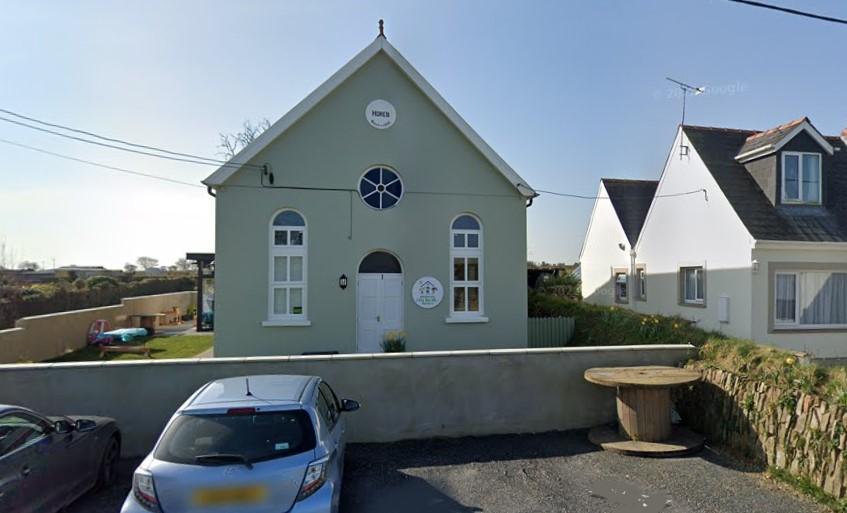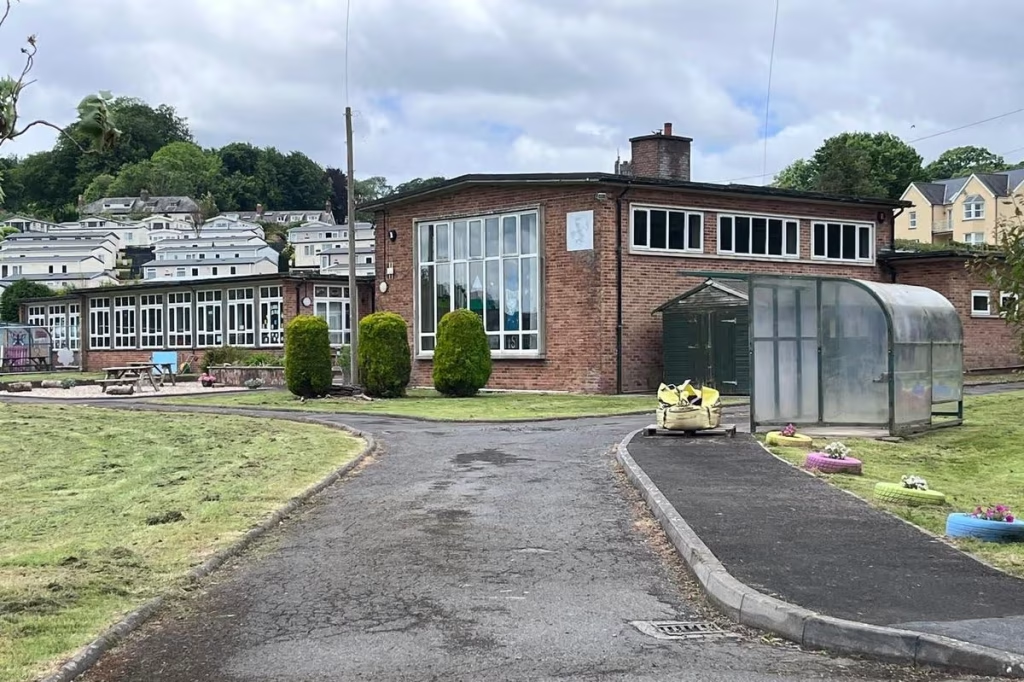Education
Sex and relationships education ‘inadequate’


SRE: ‘Should be a statutory requirement’
TEACHERS have reported serious concerns about the reality of school-level commitment to LGBTI equality at the largest gathering of LGBTI teachers, organised by the NASUWT, the largest teachers’ union in the UK.
86% of teachers at the NASUWT’s LGBT Teachers’ Consultation Conference said they do not think the Government is doing enough to communicate the importance of LGBTI equality to schools and colleges
Only 7% of lesbian, gay, bisexual, transgender and intersex (LGBTI) teachers say their school or college provides training to staff to identify and deal with incidents of homophobia, biphobia and transphobia.
56% said their school was not committed to LGBTI equality for staff and pupils.
A real-time electronic poll of members attending the Conference found that:
A third said their school or college was not a safe space for LGBTI teachers;
More than four in ten (43%) say they have experienced some form of discrimination, bullying or harassment because of their LGBTI identity during the last year;
Only 4% said their school has a programme of activities to mark LGBT History Month;
85% do not think schools and colleges are being held to account sufficiently in relation to LGBTI equality.
To support schools in ensuring they are inclusive spaces for all staff and pupils, the NASUWT has today launched new guidance on trans-awareness.
Equality for Trans Teachers is aimed at schools, colleges and employers and sets out the legal responsibilities on employers and also provides advice and guidance on the steps schools should take to support people transitioning in the workplace.
Chris Keates, General Secretary of the NASUWT, who addressed the Conference, said: “It is scandalous that in the 21st century teachers are still reporting that homophobia is still an issue for gay, lesbian, bisexual, transgender and intersex pupils and staff and that many LGBTI teachers do not feel safe in their schools .
“Despite assertions to the contrary, the Government has rolled back the progress made over decades on equality and we see the adverse impact this is having on teachers and pupils in our schools.
“All schools must demonstrate a commitment to creating a climate where all staff and pupils feel respected and safe.”
On the other hand, education regarding LGBTI issues for children in Wales’s schools is haphazard and very much left to individual schools to deliver. Parents retain the power to prevent schools from delivering sex education to their own children.
In England, even the more limited Personal and Social Education (PSE) is not compulsory.
The 124 page Donaldson report on Wales’s education system barely mentions either SRE or (PSE), with which the delivery of which SRE is occasionally synonymous. In 124 pages SRE is mentioned not at all, PSE on four occasions in passing and sex education on three occasions.
The Welsh Government, which imposes PSE as a statutory obligation has avoided compulsory SRE in schools.
Cadan ap Tomos, the Liberal Democrat candidate for Cardiff West, has described Welsh Sex and Relationships Education as ‘woefully inadequate’.
Reflecting on his own relatively recent experiences of the Welsh education system, Cadan ap Tomos told the Welsh Liberal Democrat conference that attitudes towards sex and sexuality were still stuck in the past and did not acknowledge the realities of life in a modern nation.
Speaking candidly of his own experiences, Cadan ap Tomos said: “At no point during my education was the message hammered home that being anything but straight was perfectly normal.
“My school’s sex education curriculum barely dealt with the issue of sexuality – a single session on “homophobia” in year 10 was deemed adequate. But by that point, most young people will already be confused and worried about who they are.”
Cadan ap Tomos reflected wider concerns about the paucity of SRE advice given to Welsh students. Saying that the education he received did not deal properly with either the issue of sexual consent or health relationships, the Liberal Democrat candidate for Cardiff West observed: “There’s no wonder that a number of my peers to this day continue to have deeply unpleasant attitudes towards women.
“Every single child in Wales needs good quality, age-appropriate sex and relationships education. The attitude of your parents, or even the sort of school you attend, should not stop you from being given the best opportunity to be comfortable with who you are.”
NUT Wales Policy Officer, Owen Hathway, said: “Sex and Relationships Education should be a statutory requirement for all children, whatever their background. The importance of relationships should be taught at an early enough age to ensure children have respect for their bodies.
“What teachers need is the flexibility in schools to vary what they teach according to the needs of parents and children in their individual school communities.”
Education
Pembrokeshire youth workers lead life-changing wellbeing visit to Iceland

A GROUP of Pembrokeshire school-based youth workers recently took young people from four secondary schools on an unforgettable six-day visit to Iceland — a journey focused not only on education, but also on wellbeing, confidence and personal growth.
Funded through Taith, an international learning exchange programme for people in Wales, the trip brought together young people from across the county, many of whom had never travelled abroad before.
From the moment they arrived, the experience was designed to encourage participants to step outside their comfort zones, build resilience and develop friendships in a supportive environment.
One of the most powerful moments came as the group stood together at the Old Harbour in Reykjavik under the night sky, watching the Northern Lights shimmer above them. For many, it provided a rare pause from everyday pressures — a moment of calm, connection and awe that youth workers say will remain with them for years to come.
The group also attended Iceland’s Festival of Lights, experiencing the atmosphere of creativity, music and community spirit. Sharing the celebration helped young people appreciate the importance of culture, belonging and collective joy in supporting mental wellbeing.
A visit to the Secret Lagoon offered further opportunities to slow down. Immersed in warm geothermal waters surrounded by dramatic scenery, participants experienced the benefits of relaxation and mindfulness. Youth workers noted that these quieter moments allowed conversations to develop naturally, strengthening trust and deepening relationships.
The trip placed strong emphasis on teamwork and independence. Young people navigated travel arrangements, managed responsibilities, supported one another and adapted to unfamiliar surroundings — experiences which helped build confidence and social skills.
Meeting Icelandic peers at a local youth club was another highlight. Conversations about daily life, hopes and ambitions reinforced the idea that young people across the world share similar challenges and aspirations. These exchanges fostered empathy, broadened horizons and encouraged a stronger sense of global citizenship.
Senior Youth Worker Tristy McDermott said the impact of the visit was clear.
“We observed noticeable growth in many participants over the six days — quieter young people finding their voice, friendships forming across schools, and individuals showing resilience in new situations,” she said.
“Time away from routine, combined with positive adult support and inspiring surroundings, created space for reflection and self-discovery.
“For the young people of Pembrokeshire, this was far more than a visit abroad. It was an opportunity to build confidence, strengthen wellbeing, form lasting memories and return home with a renewed sense of possibility.”
The group extended thanks to Taith for making the experience possible.
Community
Letterston nursery equipment could be stored in cemetery

A CALL for a storage container for a “well-established and valued” Pembrokeshire children’s nursery in a nearby cemetery has been submitted to county planners.
In an application to Pembrokeshire County Council, Diane Evans of Meithrinfa Do Re Mi Nursery seeks permission for the installation of a storage container, partially in retrospect, at Horeb Cemetery, Station Road, Letterston.
A supporting statement says: “The container is required to provide essential ancillary storage to support the lawful and established nursery use within the [nearby] chapel building.
“The site forms part of an active cemetery, owned and managed by a group of trustees. The applicant is one of the trustees and has obtained formal permission from the trustees for the container to be sited on this land. The area selected previously comprised a large, longstanding mound of garden waste which has now been removed. The land has been levelled and prepared with a hard-standing base.
“The container will be used solely for storage of nursery equipment and materials, including outdoor learning resources, maintenance equipment, and items required to manage both the nursery grounds and the cemetery land. No additional operational activity will take place within or around the container.”
It adds: “The day nursery provides childcare for approximately 83 children from the local community and employs 21 staff, all of whom live locally. The nursery is a well-established and valued community facility, supporting local families and contributing positively to the local economy. Adequate storage is essential to ensure the safe, efficient and compliant operation of the nursery. The chapel building itself has limited internal storage, making external ancillary storage necessary.”
It says the nursery “operates with a strong community focus and promotes sustainability and environmental awareness,” with plans to soften its appearance through the planting of trees, shrubs and flowers.
It added: “Children will take part in a ‘sow, grow and give’ project, growing cut flowers from seed. These flowers will be made available to the community, particularly visitors to the cemetery, who will be invited to cut flowers to place on the graves of loved ones. This initiative enhances biodiversity, strengthens community links, and adds social value to the cemetery space.”
The application will be considered by county planners at a later date.
Education
Parents urge council not to close Ysgol Llansteffan

Campaigners call for delay amid Welsh language investigation and rising pupil numbers
PARENTS and campaigners have urged Carmarthenshire County Council’s Cabinet not to recommend the closure of Ysgol Llansteffan when members meet on Monday (Feb 23).
The appeal comes ahead of a proposed decision that could see the village’s Welsh-medium primary school close in August this year.
The Ysgol Llansteffan Parents and Teachers Association (PTA), supported by Cymdeithas yr Iaith, has written to councillors calling for the process to be halted, arguing that key evidence remains incomplete and that the case for closure is flawed.

Among their concerns is an ongoing investigation by the Welsh Language Commissioner into the language impact assessment used to support the closure proposal. Campaigners say it would be inappropriate for the council to make a final decision before the investigation is concluded.
They also claim no council decision-makers have visited the school to verify the information used in the proposal, despite significant changes in circumstances, including a rise in pupil numbers to 17 as of January 2026.
The PTA argues that this increase undermines earlier projections and raises questions about the reliability of longer-term forecasts used to justify closure.
Financial concerns have also been raised. While council documents suggest annual savings of around £112,000, campaigners say transport costs of approximately £50,000 per year and inflationary pressures have not been clearly accounted for, potentially overstating the net benefit.
Parents say closure would remove parental choice and risk damaging Welsh-medium education in the area by forcing some children to travel further or potentially move into English-medium provision.
Cymdeithas yr Iaith has backed the PTA’s call, warning that the council’s objection report failed to properly address concerns that insufficient school capacity elsewhere could push pupils out of Welsh-medium education altogether.
Campaigners have also criticised what they describe as factual inconsistencies in the council’s reports, including outdated enrolment figures and conflicting capacity estimates for neighbouring schools.
The PTA has asked the council to defer any decision until updated data is available, the Commissioner’s findings are published, and alternative options for sustaining the school have been fully explored.
In their letter, parents stressed they remain willing to work constructively with the council to develop a long-term solution that would allow the school to remain open as a sustainable Welsh-medium provision for the community.
Carmarthenshire County Council has previously said the proposal is intended to address falling pupil numbers, high surplus places and financial pressures at the school. Cabinet members were told earlier in the process that neighbouring Ysgol Llangain would have sufficient capacity to accommodate pupils if the closure proceeds, and that transferring learners would provide access to improved facilities and help ensure long-term sustainability of education provision in the area.
The final decision is expected to be taken by full council in March following the Cabinet’s recommendation.
-

 Health5 days ago
Health5 days agoWithybush loses emergency surgery in shock health board decision
-

 Health5 days ago
Health5 days agoHealth board confirms major hospital changes across west Wales
-

 Health4 days ago
Health4 days agoConcerns grow over Bronglais stroke plans as politicians demand clarity
-

 Health5 days ago
Health5 days agoHealth board: Changes will bring “resilience and sustainability” to West Wales services
-

 Local Government2 days ago
Local Government2 days agoCandidate who withdrew from Hakin race will still appear on ballot paper
-

 Crime7 days ago
Crime7 days agoWoman, 79, made 141 unnecessary 999 calls putting lives at risk, court hears
-

 Business5 days ago
Business5 days agoMounting complaints: More Computer Solutions Wales customers claim losses
-

 Crime6 days ago
Crime6 days agoSexual assault allegation to be tried






























